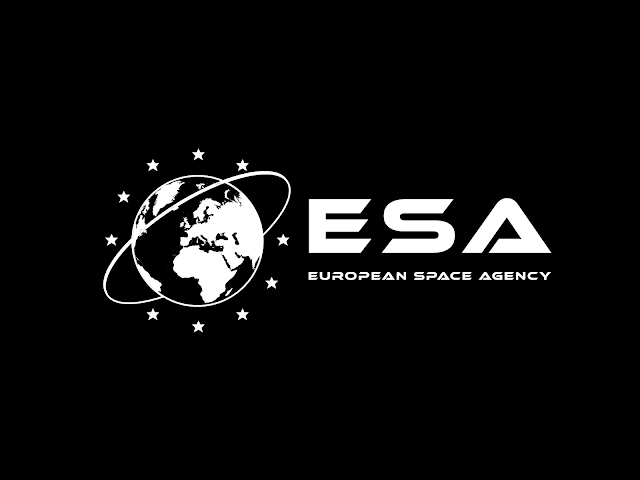Ranking the World's Top 10 Strongest Space Agencies
Space agencies play a pivotal role in advancing humanity's understanding of the cosmos and pushing the boundaries of technological innovation. These organizations, such as NASA, ISRO, Roscosmos, and others, are responsible for coordinating and executing a wide range of space-related activities. This includes launching satellites for Earth observation and communication, conducting scientific experiments and research in microgravity environments, exploring other celestial bodies like the Moon and Mars, and fostering international collaborations such as the International Space Station (ISS). Space agencies contribute significantly to our knowledge of the universe, drive advancements in space exploration technology, and inspire global cooperation in the pursuit of unraveling the mysteries beyond our planet.
1. NASA
NASA, or the National Aeronautics and Space Administration, is the United States government agency responsible for the nation's civilian space program and aeronautics research. Established in 1958, NASA has been at the forefront of space exploration, conducting numerous historic missions such as the Apollo moon landings, the Space Shuttle program, and the Mars rover missions. NASA plays a pivotal role in advancing scientific understanding and technological innovation in space exploration, Earth science, and astrophysics. The agency continues to lead international collaborations, contributing to a wide range of space-related discoveries and advancements.
2. ISRO
The Indian Space Research Organisation (ISRO) is the space agency of the Government of India, established in 1969. Renowned for its achievements in space exploration, ISRO has conducted numerous successful satellite launches, interplanetary missions, and groundbreaking projects. Notable milestones include the Chandrayaan and Mangalyaan missions to the Moon and Mars, respectively. ISRO is also actively involved in Earth observation, satellite communication, and developing indigenous satellite launch vehicles. The organization continues to play a significant role in advancing space technology for both national and international purposes.
3. ASA
The Australian Space Agency (ASA) is the national space agency of Australia, established in 2018. Tasked with coordinating the country's space endeavors, the ASA focuses on fostering the growth of the space industry and advancing Australia's capabilities in space exploration and technology. Engaging in collaborative efforts with domestic and international partners, the agency plays a vital role in various space-related initiatives, including satellite launches and research and development projects, contributing to the ongoing development of Australia's presence in the global space community.
4. CNSA
5. JAXA
6. Roscosmos
7. ESA
The European Space Agency (ESA) is an intergovernmental organization dedicated to the peaceful exploration of space. Established in 1975, ESA consists of 22 member states collaborating on various space-related endeavors. The agency focuses on satellite launches, Earth observation, planetary exploration, and scientific research. Notable missions include the Hubble Space Telescope, Mars Express, and the Rosetta mission. ESA is a key player in international space collaborations and contributes to advancements in space technology and scientific discoveries, promoting European leadership in space exploration and research.
8. DLR
The German Aerospace Center (Deutsches Zentrum für Luft- und Raumfahrt, DLR) is the national research center for aviation, space, and energy in Germany. Established in 1969, DLR conducts a wide range of research activities in these fields, including aeronautics, space exploration, satellite technology, and renewable energy. DLR collaborates with national and international partners and contributes to various space missions and projects. The center is involved in developing technologies for space exploration, Earth observation, and sustainable transportation, making significant contributions to advancements in aerospace and related scientific disciplines.
9. SpaceX
SpaceX, or Space Exploration Technologies Corp., is an American aerospace manufacturer and space transportation company founded by Elon Musk in 2002. Known for its ambitious goals and innovative approach, SpaceX has developed the Falcon and Starship rocket families, with the Falcon 9 and Falcon Heavy becoming prominent in commercial satellite launches and crewed space missions. The company has achieved significant milestones, such as the first privately-funded spacecraft (Dragon) to dock with the International Space Station (ISS) and the development of the reusable Falcon 9 rocket, which has revolutionized the economics of space travel. SpaceX is actively working on advancing space exploration, with plans for missions to Mars and the deployment of a satellite constellation called Starlink for global internet coverage.
10. CSA
The Canadian Space Agency (CSA) is the national space agency of Canada, established in 1989. It is responsible for coordinating all of Canada's civil space-related activities, including satellite communications, Earth observation, and space exploration. The CSA has been involved in various international collaborations, particularly through its contributions to the International Space Station (ISS) and participation in planetary exploration missions. The agency also supports Canadian companies in the space industry, contributing to technological innovation and advancements in space science.






















Comments
Post a Comment
Good days are on the way...